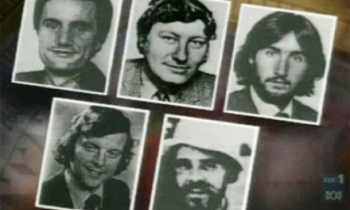Sometimes, even journalists want to believe in miracles.
We are, after all, unfailingly human, which might help explain why we got it so wrong last week.
In hindsight, there appears to be no professional excuse for the lapse in reporting that led so many television stations and newspapers to run stories declaring that 12 of the 13 men trapped in a West Virginia coal mine had been found alive. A rumor had sparked an eruption of tearful celebration that reporters -- and then their editors -- interpreted as proof that the miners were alive, without any official confirmation from those involved in the rescue.
Three long hours later, those same news operations heaved a collective gasp of horror after rescuers said that only one of the miners had survived -- long after many newspapers had already printed first editions heralding the miracle rescue.
It was yet another bad day for journalism, and we are predictably wringing our hands and hurling accusations as we try to figure out what went wrong.
The Denver Post's TV critic, Joanne Ostrow, winced at the whole notion of a miracle finding its way into news accounts. "TV news people tossing around the word miracle' is bad enough," she wrote. "Proclaiming a miracle with no verification is a travesty."
Newsday's Rick Edmonds wrote that most of the reporters and editors had "swallowed the rumors whole, without asking rude questions about its origin."
Those would have been hard questions, indeed, in the face of what reporters witnessed after family members heard their loved ones were alive. I make no excuses for weak reporting, but I am willing to imagine how it must have felt for the reporters and photographers who'd spent long hours with terrified family members daring to hope. Suddenly, church bells rang and sobbing relatives embraced, convinced that their dark vigil had come to a joyful end. Any reporter unmoved in the midst of that probably isn't the kind of person you'd even want in your newsroom, let alone assigned to cover the unfolding of such a tragedy.
So often, the humans we are have to wrestle with the journalists we are supposed to be, the cranky skeptics who must question, always question, no matter what we want to believe.
I have more sympathy than some for the print journalists who reported that the miners had survived. They all work for newspapers where the editors have one eye turned to TV all day long. I don't envy any newspaper reporter who tried to convince editors back home that just because TV had it doesn't mean it was right. Too often, that battle is lost the moment some newscaster proudly crows, "We have just learned . . . "









